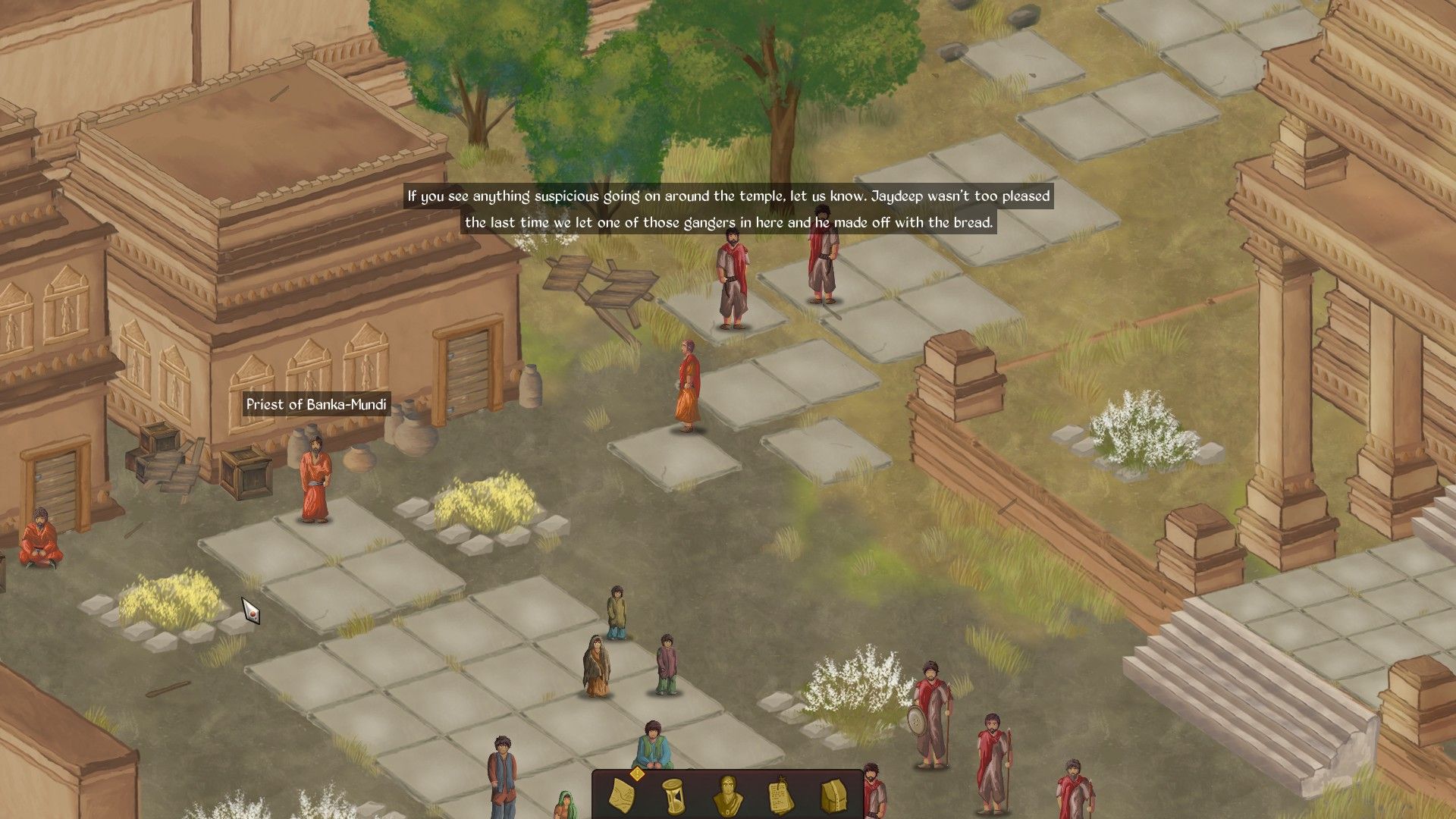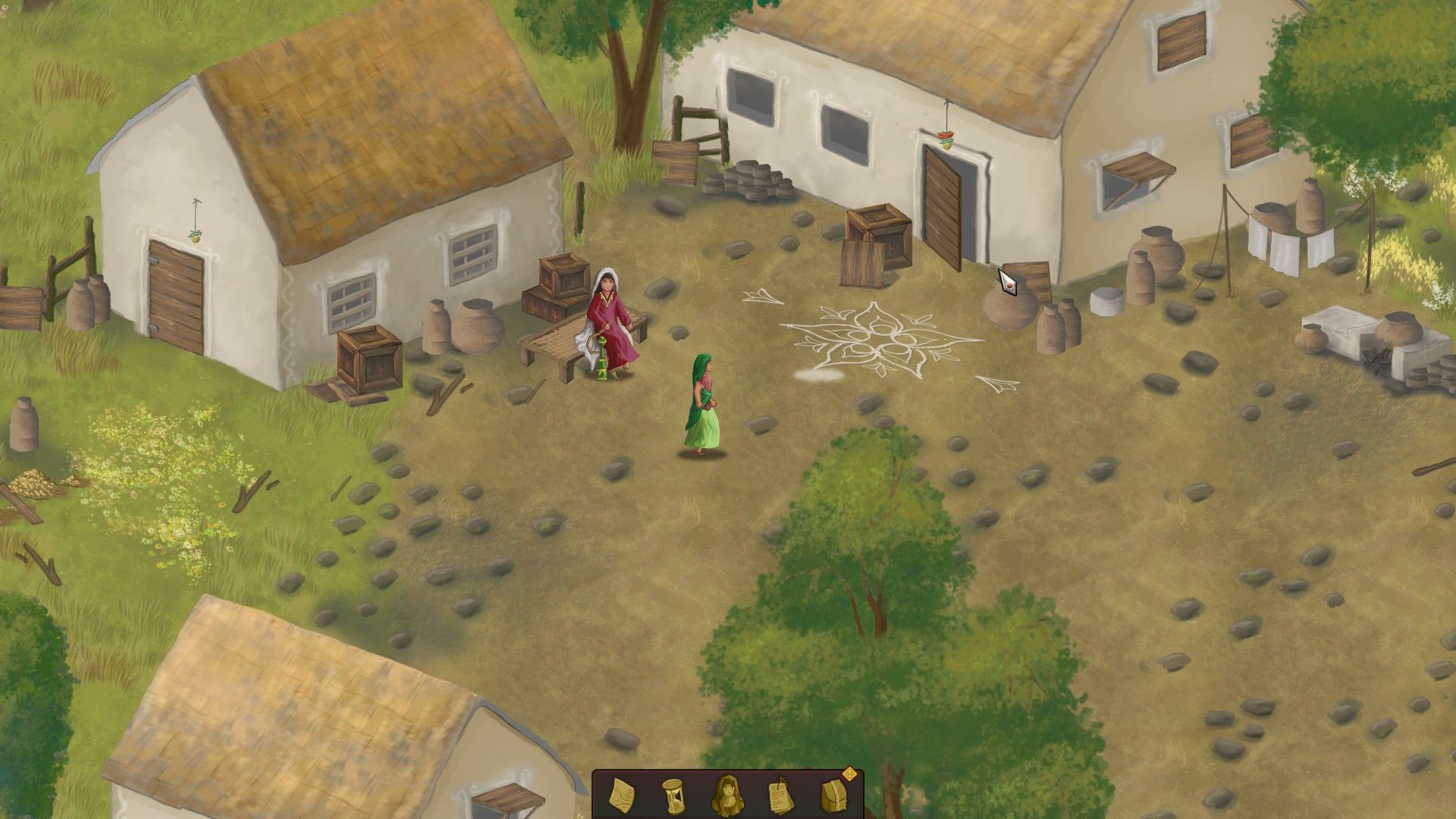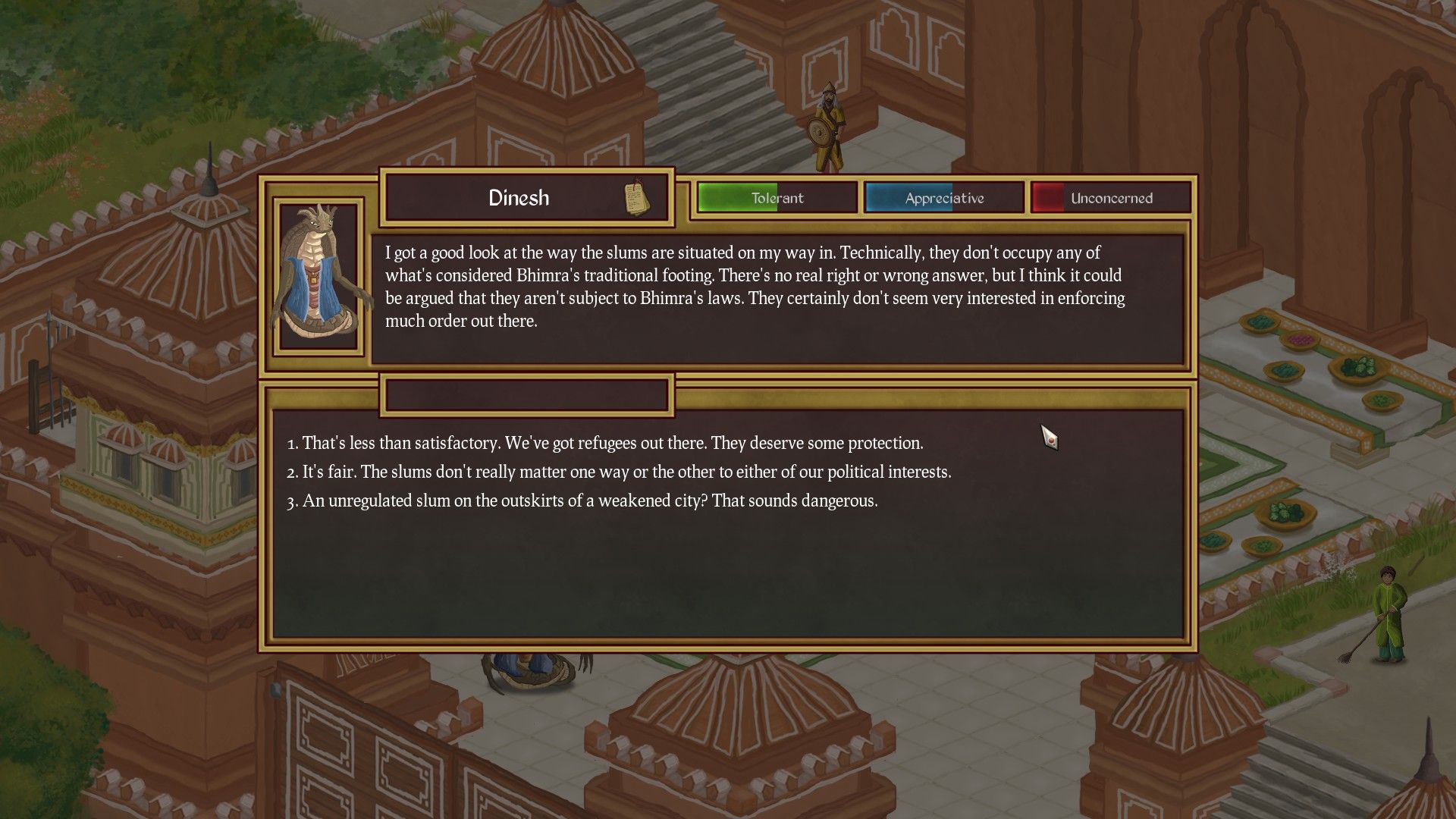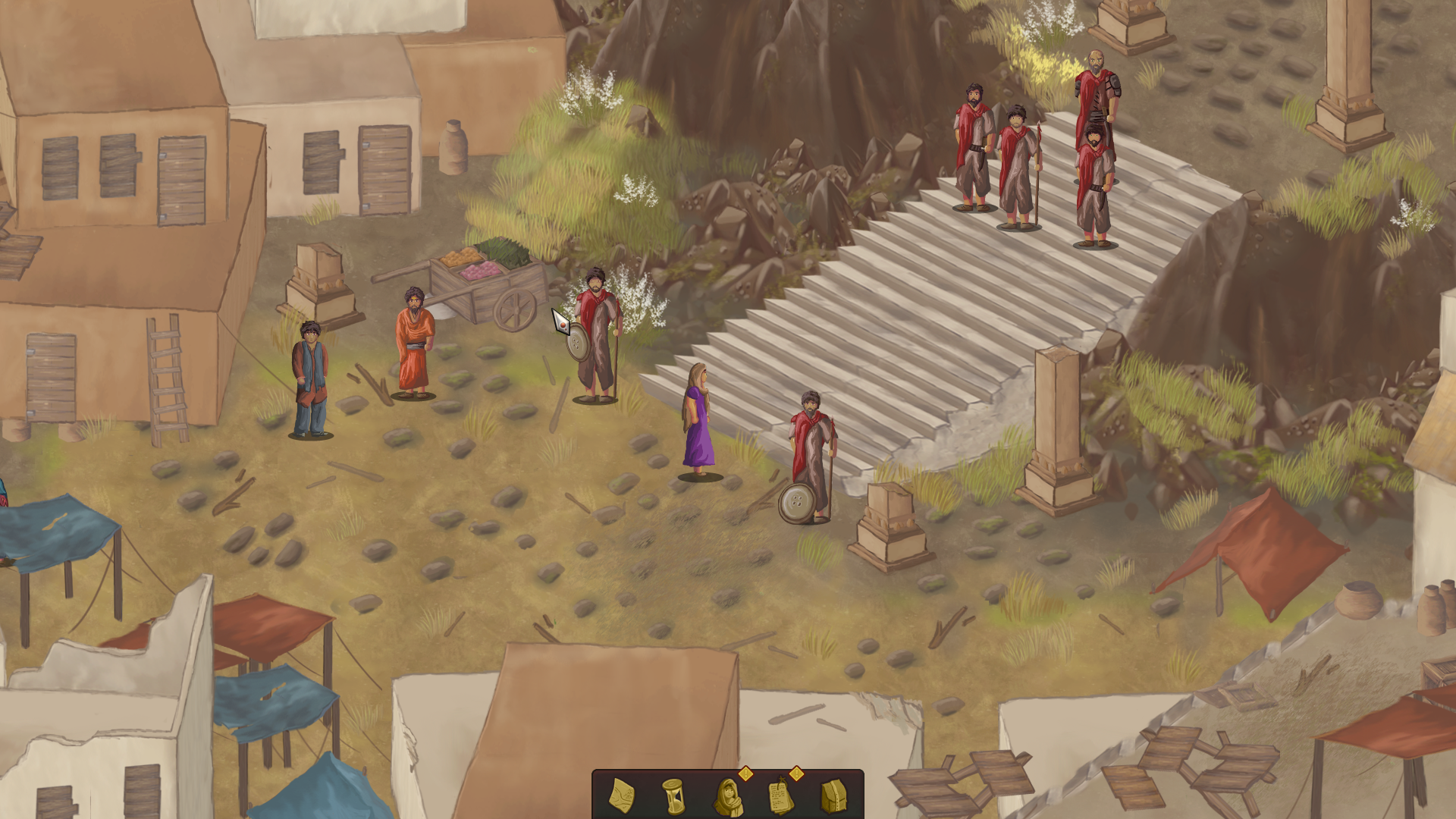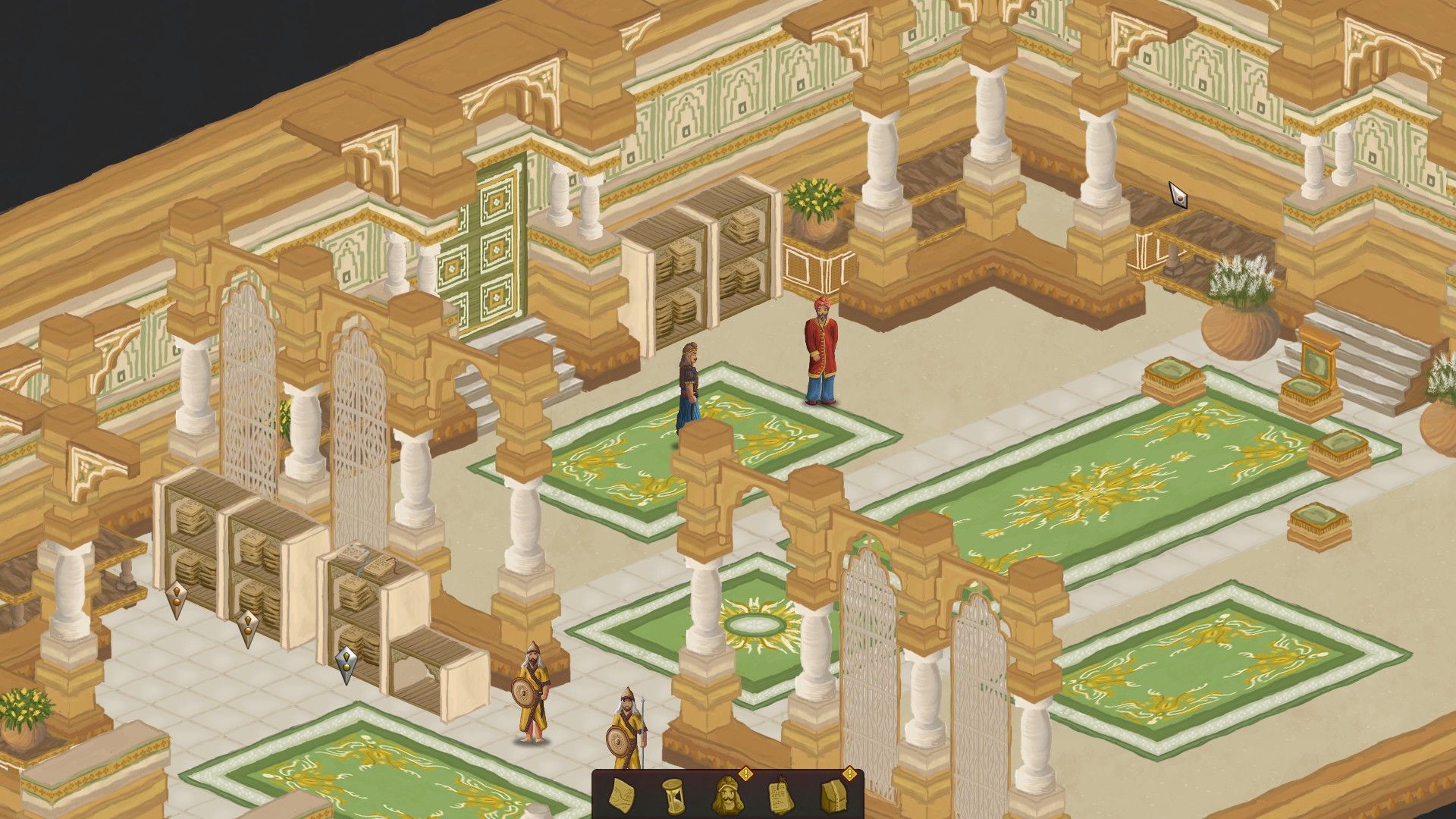A common complaint about fantasy RPGs is that they're too homogenized. Orcs, elves, and fictionalized versions of medieval Europe abound, while other settings are largely disregarded. We have such a rich tapestry of cultures to draw on, and by definition the genres is open to limitless possibilities, so it's a shame that we base most of our stories on such a narrow range of times and places.
Unrest is not content with the status quo - and it's not particularly fond of fantasy cliches, either. Based on Indian mythology, the game centres around a city state on the verge of collapse. Years of drought and famine have brought Bhimra to its knees, and refugees from a neighbouring empire have stretched its resources to their limit. The refugees in question happen to be Naga, massive snake people with monstrous appetites to match their frightening appearance. As much as they present a threat to Bhimra's stability, however, they may prove its salvation.
The Naga empire sees Bhimra as a valuable ally - as well as a dumping ground for their excess population. Their lack of a caste system allows for greater social mobility in theory, but in practice there are only so many opportunities and many of their citizens go hungry. Bhimra's royal family seeks to take advantage of the situation with a treaty. In exchange for supplies and food, they will take in skilled Naga immigrants who are unable to find work in the capital.
Of course, increasing the city's population in a time of famine doesn't sit well with the city's people, especially the untouchables out in the slums. In the midst of this unrest, the royals are assassinated, and a council of conspirators takes over the city. Over the next year, things become even more dire. A second harvest without monsoons leaves the people even hungrier, and racial tensions between man and Naga have hit an all time high. The city is a powder keg, and any spark could set it off.
It's left to you to decide what that spark will be. Unrest puts you in control of several characters throughout Bhimra, ranging from vital figures like the deposed princess to seemingly innocuous bit players like a humble priest. Each will have a part to play in determining the fate of the city -even if that part is to die and further upset the balance. The decisions you make form an intricate web of choice and consequence, and the range of possible outcomes is vast.
In fact, the level of control you're given over the story might actually be *too* vast. You're given control of key players on every side of the conflict, and left to make decisions with information they couldn't possibly possess. Exploring the possibilities in this way is certainly interesting, but it's not exactly believable, which is a shame given how rich the game's world is. With each playable character given a broad range of choices, the narrative also runs the risk of becoming incoherent, a problem faced by the similarly branching Heavy Rain. People might act out of character, or in direct opposition to their own good sense and self-interest, all because the player is pursuing a specific ending. As such, it's hard to call this a "role-playing" game, per se.
Indeed, this isn't really much of an RPG at all. You have stats and traits, but those only represent the branches your story has taken. There are some other genre trappings present; Unrest makes use of a detached, isometric perspective similar to the Ultima games, and in certain circumstances you may have to take up arms in a simple fighting system. Combat is meant to be used as a last resort, and it has narrative consequences beyond who lives and dies. Generally speaking, the less Unrest feels like an RPG as you're playing it, the better you're doing.
Unrest's adaptive narrative is impressive in spite of this. The script is relatively solid, and the various characters all have their own voices and mannerisms. There's also less in the way of exposition than you'd expect from a fantasy story. Characters speak very naturally, with the assumption that the person they're addressing knows what they're talking about. The cultural divide between Naga and Humans is used an excuse to explain more complex concepts, but it's used subtly. It's also clear that the story comes from a different perspective than most games. Caste systems and arranged marriage are treated as sort of a given, whereas western writers would likely make a big deal out of them. My only complaint about the script is that it's riddled with typos and grammatical errors. Surely a little bit of that kickstarter money could have gone toward proofreading.
It's clear that the Unrest we've gotten isn't quite the game it could have been. Its kickstarter ended short of several stretch goals which could have drastically improved it. A few more scenes to flesh out the side plots and another city would have gone a long way. With a little more money, it could have had character portraits for its dialogue trees, which would be infinitely preferable to the somewhat ugly sprites it currently uses. Generally speaking, the art leaves a lot to be desired - Unrest looks like a cheap flash game, to be frank - but there's only so much you can ask of an independent developer.
The music, on the other hand, is absolutely stellar. Here the game wears its Indian heritage on its sleeve, with a catchy, occasionally danceable eastern style. It's not nearly as over the top as the Bollywood music you might be used to, but it feels definitively Indian. If you enjoy sitar riffs and snake-charming music you'll find a lot to love here.
Closing Comments:
Unrest is a choice-driven RPG with little combat to speak of that touches on relevant social issues. It's not unlike Always Sometimes Monsters, though it ironically takes cues from western-style RPGs where that game took them from eastern ones. Unrest feels a little more focussed than most games of its ilk, and it has a thankfully short run time to facilitate multiple playthroughs. You get a real feeling of agency as you guide the game's story, and it's refreshing to play something from a different cultural perspective.
Platform: PC


